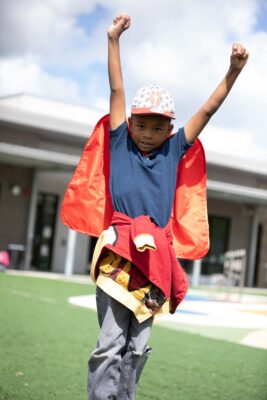Post-PCS: How to Make the New Duty Station Feel Like Home
Written by Poli Dimitrova
From frantic packing to heartfelt goodbyes, from the thrill of a fresh start to the uncertainty of a new duty station, a military move is a rollercoaster of emotions. It leaves families physically exhausted and emotionally disoriented — caught between the life they’ve left behind and what lies ahead. That’s why the post-PCS pause is so crucial. For many, it’s a chance to reflect, breathe, and begin to settle in. Remember: it’s not just about unpacking your new house — it’s about nurturing your family’s well-being. Embracing this time with intention can transform uncertainty into opportunity and help you build a foundation that truly feels like home.
Steps to Make Your New Duty Station Feel Like Home
As a military spouse who thrives on routines and organization, I always feel a wave of relief and excitement when we get the call: our household goods are arriving. If you’ve just completed a PCS (Permanent Change of Station), chances are you’ve spent weeks — or months — living out of suitcases and improvising with borrowed essentials.
When the movers start hauling in box after box, it’s both comforting and chaotic. Spotting your favorite (and thankfully intact) couch beside a mystery box labeled “bedroom” in unfamiliar handwriting can feel surreal. Once the last box is in, that initial excitement often gives way to a feeling of overwhelm. That’s the moment to take a deep breath. Making your new duty station feel like home begins with small, intentional steps.
Step One: Unpack What Matters First
It’s hard to know where to begin. I focus on daily essentials: beds, a coffee station, and a play corner for my son. Recreating familiar setups from our previous home helps us feel more grounded.
I always start with the kitchen — while movers are still working — since it’s usually the most time-consuming. I load small items into the dishwasher, handwash larger ones, and ask movers to haul away the mountain of packing paper. Suddenly, things already feel more manageable.
I dislike clutter, so boxes meant for later use are stacked in a spare room or tucked away in a corner. This trick creates a sense of order amidst the chaos, making walking through the house feel less like navigating a maze.
During our PCS move to Italy, I ensured our son’s room was box-free. He noticed his toys emerging and eagerly helped unpack. To help him sleep that night, we kept his space distraction-free and reminded him this was his room, filled with his things. It was a small but meaningful step toward feeling settled.
Let go of the pressure for a Pinterest-perfect home. Prioritize comfort and connection. A cozy reading nook or your favorite candle’s scent can make all the difference.
Step Two: Get to Know Your Surroundings
You can’t unpack 24/7. When the boxes start to blur together, take it as a sign to step outside and explore.
Start with Google Maps or simply walk around the neighborhood. Find a nearby park for the kids, a cozy coffee shop, or the local library — not just for books, but for story time or community events.
I love these outings because they often lead to meeting other parents and spouses. Some of my closest friendships began at toddler time or story hour. The key is consistency — keep showing up, and connections will follow naturally.
Don’t limit yourself to military spaces. Try a city sports league, join a local moms’ group, or attend a festival. Being open to your new community leads to unexpected and enriching experiences.
Step Three: Say Yes to Connection
Undoubtedly, the fastest and easiest way to settle into your new duty station is to find friends and feel connected with your community. That’s where the Armed Services YMCA (ASYMCA) comes in with its fantastic programs. From after-school support to parenting groups, ASYMCA offers warm, welcoming spaces where military families can connect with others who are going through similar transitions. It is a fabulous way to get to know your community and start b

uilding connections with other military spouses.
Operation Hero
Operation Hero is designed for kids (grades 2-5) struggling with the unique challenges faced by military children. A trained professional presents discussions and activities to help children navigate the hardships of military life and support their academic progress.
Operation Camp
During the summer months, parents can take advantage of Operation Camp, a fun and educational day camp. A fantastic option if you notice your kid struggling to settle into the new duty station, as they will be introduced to other peers and build meaningful connections.
Operation Little Learners
Operation Little Learners, on the other hand, is an excellent choice for military families with younger children. Military families are provided with tools and resources to build a stronger parent-child bonding experience. Moreover, this is an excellent way to meet fellow military spouses and build new friendships.
Step Four: Build Rituals That Feel Like Home
As a foreign national and a military spouse, I have learned that it’s hard to see any one place as home due to frequent relocations. So instead, I try to create my version of home, which moves with us. Home is not a physical location defined by walls; it is the people I am with — my husband and my son. Together with the rituals and routines we take with us from one place to another, we remain grounded and reminded of who we are.
Keep in mind that none of these have to be big and elaborate, and don’t need to happen immediately, especially during those first weeks when you are still unpacking and settling in. Something as small as a morning walk to the playground, a Friday Pizza night, or evening stories on the same chair you have had for the last four duty stations can help with the adjustment after a challenging PCS Season.
Finding the balance between making your new space feel like home and exploring your new area might feel tricky at first. Our approach has been to divide the weekend into two parts. One day is dedicated to what my 2-year-old son calls “going for an adventure” — we head out to explore a new place we haven’t been to. The next day, we find time to pause, take it slow, and practice one of our familiar rituals. These moments help us feel grounded and remind us we are not just tourists — we are building a “home” here.
From Pause to Possibility
In a life marked by constant change, the post-PCS pause offers a rare opportunity to breathe. It may seem counterintuitive when you’re rushing to unpack, but this moment is a gift. It’s a chance to reflect and reset — not just to settle into your new duty station, but to start fresh with intention.
A home isn’t created overnight. It’s built with care, consistency, and love. Let the ASYMCA and its military support programs aid your journey — offering more than just services, but real community when you need it most.

